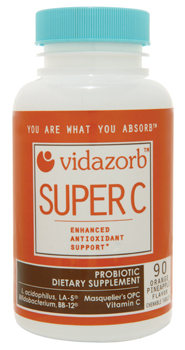By Mary Hartley, RD, MPH for Vidazorb Chewable Probiotics*
You have one big family of 100 trillion bacteria living in your gut. That’s ten times more bacteria than total human cells. So far scientists have identified more than 500 strains, each an independent organism with a unique set of genes and talents. It’s important to keep your big family happy.
The “friendly” bacteria in your gut help to digest your food and regulate your immune system. Most of those friends are members of the Lactobacillus or Bifidobacterium genera. We all share certain specific bacterial colonies, but there is wide variation in the overall balance. We each have different proportions of bacterial species in us, and bacterial imbalance may contribute to many diseases including allergies, infections, and autoimmune conditions, and now, obesity.
In studies, gut bacteria seem to influence weight. The mix of bacteria may play a role in the tendency to gain. Early research shows that morbidly obese people have different gut bacteria compared to healthy weight people. Obese people have more of the bacteria called Firmicutes and fewer Bifidobacteria spp and Bacteroidetes, and the reverse is true (1). Roux-en-Y gastric bypass surgery shifts the microbe mix. Before surgery and the reduction of food intake, obese people have more Firmicutes, but after surgery, they develop more Bacteroidetes (2).
Mice can be made to gain weight – or not – by manipulating their gut bacteria. When normal weight mice are colonized with bacteria from genetically obese mice they gain weight, but not so when the microbes come from mice of normal weight (3). Likewise, inoculating mice with Lactobacillus ingluviei changes their intestinal flora and increases their weight (4). The evidence is compelling and we’ve only just begun to look. (more…)

